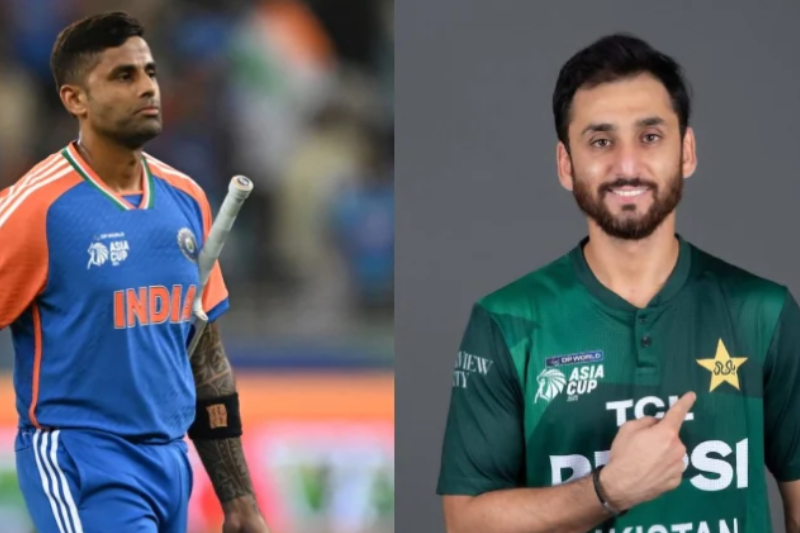Former England captain Michael Atherton has made a striking statement that has sent ripples through the cricketing world. The legendary cricketer and respected commentator believes that the International Cricket Council (ICC) should stop scheduling Pakistan-India matches in its global tournaments.
According to Atherton, what was once a symbol of diplomacy and sportsmanship has now become a stage for political propaganda and controversy. His comments have reignited debate among players, fans, and cricket administrators across the globe.
Rivalry Turns Political
The Pakistan-India cricket rivalry has always carried emotional and political undertones, but recent encounters have pushed tensions to unprecedented levels.
Atherton noted that matches between the two nations no longer reflect healthy sporting competition but instead serve as an extension of political disputes between the governments.
“If cricket was once the vehicle for diplomacy, it is now, clearly, a proxy for broader tensions and for propaganda,” Atherton wrote in his column following the Asia Cup fallout.
Asia Cup Fallout Highlights Deep Divide
The 2025 Asia Cup once again became a flashpoint in the ongoing rivalry. From skipped handshakes to politically charged statements and even ICC sanctions, the tournament underscored how the sport is being overshadowed by off-field issues.
Atherton argued that such controversies are doing more harm than good to the image of international cricket. What used to unite fans across borders is now dividing audiences and fueling political narratives.
He emphasized that the ICC must step in to restore the spirit of the game and protect cricket from becoming a tool of national rivalry.
The Financial Factor
There’s no denying that Pakistan-India clashes are the most lucrative fixtures in world cricket. According to reports, broadcasting deals for these matches have crossed $3 billion, making them the most-watched events in the sport’s history.
Atherton, however, believes that money should not dictate morality.
“The game’s integrity cannot be compromised for financial gain,” he wrote, urging the ICC to prioritize ethics over economics.
He further noted that cricket boards and broadcasters have capitalized heavily on the emotional appeal of the rivalry, but the long-term consequences could be disastrous if the sport continues to be politicized.
Fans Torn Between Passion and Politics
Cricket fans across both nations have mixed feelings about Atherton’s statement. For millions, Pakistan vs India is more than a match it’s a festival, a tradition, and a source of immense national pride.
However, a growing number of fans and analysts agree that the intensity of the rivalry has reached a point where it often overshadows sportsmanship.
Social media eruptions, political slogans, and post-match controversies have made it harder for cricket to be enjoyed purely as a game.
Atherton’s remarks have therefore opened an important conversation: Should the ICC limit such fixtures until relations improve?
Cricket’s Diplomatic Role in Question
Historically, cricket has played a vital role in easing tensions between the two nations. The “Cricket Diplomacy” of the 1980s and early 2000s brought moments of unity and hope. Yet, the modern era tells a different story.
Atherton believes that cricket can no longer serve as an instrument of peace if it keeps amplifying political divisions. Instead, he suggests that temporary separation might help both countries and fans regain perspective on what the game truly stands for fair play, respect, and unity.
Reactions from the Cricket World
Atherton’s statement has sparked strong reactions from cricketers and commentators worldwide.
While some support his stance, arguing that constant controversies harm cricket’s image, others believe that removing such fixtures would punish fans and deprive the sport of its most iconic rivalry.
Former Pakistani players have described Atherton’s remarks as “understandable but extreme,” suggesting that rather than ending the matches, the ICC should focus on stricter regulations and better diplomacy to control off-field issues.
Indian analysts, on the other hand, have pointed out that boycotting or cancelling matches might further deepen mistrust and reduce cricket’s unifying power.
Also read this: England Sweep Past South Africa in ICC Women’s Cricket World Cup 2025
Has the Rivalry Outgrown Its Purpose?
As Pakistan and India continue to clash both on and off the field, the question remains: Has this rivalry lost its sporting essence?
Atherton’s words challenge cricket’s global community to reflect. If the sport truly aims to unite nations and inspire fans, it must rise above political manipulation.
Perhaps, as he suggests, the time has come to pause and rethink how this rivalry fits into the broader picture of world cricket.
Time for the ICC to Reflect
The debate sparked by Michael Atherton’s comments is not about choosing sides it’s about protecting the spirit of cricket. The ICC now faces a crucial decision: continue to exploit one of the most profitable rivalries or take a principled stand to preserve the game’s values.
While the world may not be ready to imagine a tournament without a Pakistan-India clash, Atherton’s warning serves as a wake-up call. For cricket to remain a symbol of sportsmanship, it must ensure that no match no matter how historic becomes bigger than the game itself.

